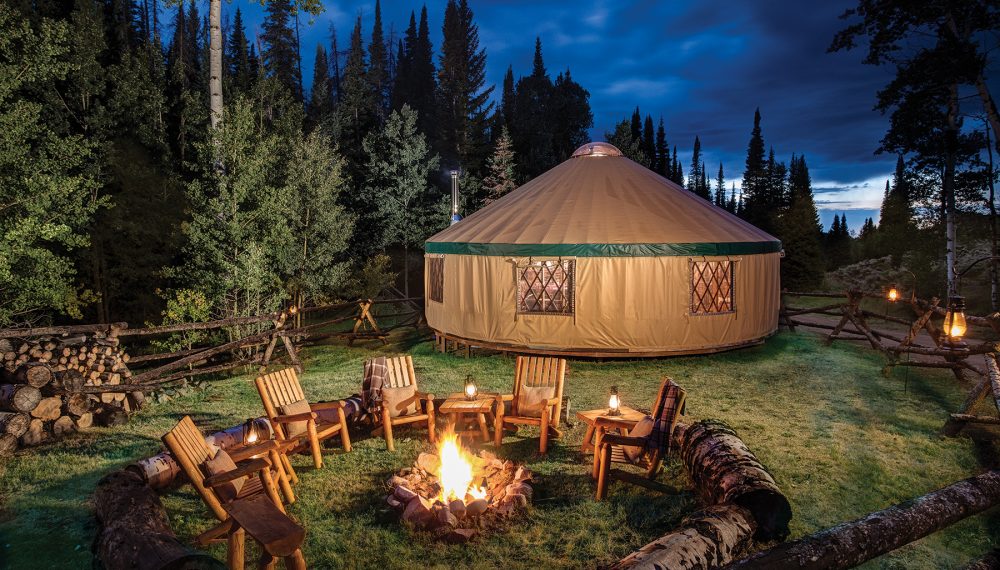There is an evident effort to upgrade the quality of local hotels and entertainment places, both in terms of building and service quality; we now note the Tourism Ministry is encouraging organised camping.
The proposal indicates these campsites should be set up in wooded areas or ones especially created.
These campsites, mind you, place several limitations and requirements, including the existence of a sewage treatment plant, electricity, other public services, and parking, fencing all around, including the existence of a security gate.
We have referred to the creation of tents called Yurts (Mongolian type tents) and ordinary tents for the Arab deserts used by Bedouins.
It is a fact some people opt for adventure holidays, where projects are set up in very large areas.
Such type of holiday accommodation can be found in addition to forest areas and isolated deserts.
We have discovered such projects in Ghana, Kenya, South Africa, Jordan.
Such “Favela” type accommodation is to be found in Cyprus, at Governor’s beach, Troodos square, and to a lesser extent in the beach localities of Polis (near Latchi).
These campsites are developed haphazardly, and they are most disappointing.
Because we live in Cyprus, even if such projects are allowed, based on the restrictions stipulated, pressure groups and MPs will start pushing for deviation and relaxation to make these projects even more haphazard than planned.
So where do you think these “tourist campsites” will be located?
Most likely in the Troodos region, cutting down pine and other trees, whereas other destinations such as the Pissouri/Pachna/Lofou areas are examples (rich in olive and carob plantations) that will suffer from this ecological destruction.
Akamas is the area that will come first under pressure for such developments.
So far, tent camping is used mainly by young people with their all-night parties and boozing, resulting in crime like causing bush fires.
There are lovely “igloos” type units in places such as Alaska, Borneo, Costa Rica. Still, these are isolated projects occupying less than 1% of the total areas not suitable for densely developed Cyprus.
Even if we are to accept (for any reason) this type of development, there are challenges:
- Minimum site area 130,000 sqm (net area).
- The upkeep of existing vegetation, including new plants (at least 4 m. height of the type existing in the location, e.g. pines, carob, olive trees under the supervision of the Forestry Department, with their annual permits not to be renewed if the trees are not looked after).
- Fire protection crew, including the presence of fire fighting vehicles on-site at all hours.
- Bank guarantee by the operators for €100,000 to cover the destruction of the trees and the environment by fire or otherwise.
- Around the clock Private security (1 person for every 10 tents).
An attempt to build 5 Yurts at Platres was cancelled, with the District Office not bothering to reply to us.
The local council even complained to us in writing that we should have investigated the matter further – which we did.
The council wrote a written letter stating that the cutting down of the pines for the project will be restored (not yet after a whole year, and the debris is still there!!).
If there is a reason for this sort of “development” (which we do not understand), those at the Ministry of Tourism who have suggested low-cost units in agricultural areas for foreign visitors to experience living in an agricultural community and to participate in the potato picking, olives and carobs, it will not happen.
Picking potatoes at 30-40 degrees, and then what?
If this visiting experience is a must, why not let the visitors stay in hotels and then visit agricultural establishments in organised groups?
We are told that these sorts of things are desperate measures to attract foreign visitors (are we serious?).
Yes, there are similar projects abroad, but we have seen the results (see Mati in Greece, where 100 people were burned in a bushfire).
Our safeguard for such “ideas” is that they are not viable financially, so it will not happen.
Instead of these nonsensical ideas, we could have other “things to do” when the sun and sea are not there.
For example, the Samos hotels where they have local dish cooking with guest participation under the supervision of a local chef, donkey trips for a whole day and/or overnight stays in a camp (it does wonders for business bonding as well) whereas our local wineries will be happy to host such visitors for grape picking and so on.










